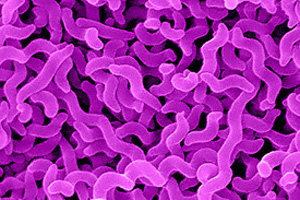Control strategies for Campylobacter infection

Campylobacteriosis is the most frequent zoonotic disease in humans worldwide and poultry meat contaminated by Campylobacter jejuni (C. jejuni) is an important source. Broiler chickens are the common natural host for this pathogen and infected birds carry a very high Campylobacter load in their gastrointestinal tract.
By: K Ghareeb, WA Awad, M Mohnl, G Schatzmayr and J Böhm
Therefore, intervention at the farm level by reducing pathogen colonisation should be taken into consideration in any control policy. In addition, hygienic measures at the farm and control measures during carcass processing can reduce Campylobacter numbers on the retail product. It is important to differentiate between prevention and colonisation-reducing measures, which intervene at a different stage of the infection process.
Several approaches have been conducted to reduce the number of Campylobacter in poultry, such as vaccination, passive immunisation, bacteriophages, bacteriocins, organic acids or their derivatives and medium chain of fatty acids, all with varying degrees of success. Nonetheless, to date there is no reliable and practical intervention measure available to reduce colonisation of the broiler gut with Campylobacter.
A possible way to reduce Campylobacter contamination in poultry is to develop new strategies at the primary production level. As a consequence, it has become necessary to develop alternatives such as beneficial microorganisms (probiotics). The use of probiotics can help to improve the natural defence of animals against pathogenic bacteria and is an effective approach for livestock to reduce bacterial contamination.
This review summarises current on-farm control options to reduce the prevalence and colonisation of Campylobacter in poultry. The interaction between poultry welfare and Campylobacter colonisation is also discussed.
| This is an abstract from the World’s Poultry Science Association‘s Journal. To purchase report options: Purchase this report from Cambridge Journals Subscribe to WPSA journal (already a WPSA member) Become a WPSA member (word file) (pdf file) |












